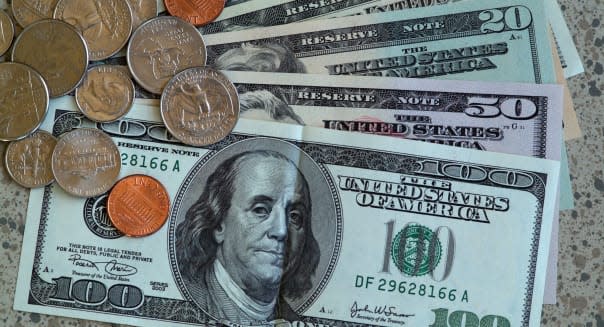How to Buy a Dollar with Just 88 Cents

What if there was a way to buy Apple (AAPL) -- recently trading near $568 a share -- for just $500? It's not an outlandish scenario. That's essentially what investors buying into Tri-Continental (TY) are doing.
Like many closed-end stock funds, Tri-Continental trades for less than the value of its underlying assets. In Tri-Continental's case, its close on Dec. 24 of $20.18 is a 12 percent discount to its net asset value of $22.95 a share.
Tri-Continental invests in some of the country's largest companies across various different industries. Apple just happens to be its largest holding at nearly 3 percent of the portfolio, but it's one of the many stocks in Tri-Continental that investors are buying into for pennies on the dollar.
If this sounds too good to be true, you would be right. There's a catch -- and a big catch, at that. But let's first explore the largely ignored universe of closed-end funds.
Fun with Funds
When investors think about mutual funds they are probably referring to the wide universe of open-ended funds.
Led by iconic fund families including Vanguard, Fidelity and T. Rowe Price (TROW), these conventional funds sell an unlimited number of shares. %VIRTUAL-article-sponsoredlinks%They typically are priced just once at the end of every trading day. Buyers invest and sellers cash out at that day's net asset value, or the closing value of all of the stocks and investments in the funds after subtracting any liabilities that is then divided by the number of shares outstanding.
Closed-end funds don't play that way. They trade throughout the day on public exchanges. Tri-Continental, for example, trades on the New York Stock Exchange. A closed-end fund doesn't create new shares when investors want to buy or subtract them when those shares are redeemed. There's a set number of shares, and the free markets of supply and demand dictate their price.
Tri-Continental isn't new. The fund has been around since 1929, the same year of a historic market crash. It's one of the hundreds of closed-end funds, and most of them are currently trading at a discount.
Adams Express (ADX) has also been around since 1929, and it trades at an even steeper 13.5 percent discount. Like Tri-Continental, it emphasizes blue chip stocks. There are several other closed-end funds that trade in specific sectors or geographical regions.
There's Always a Catch
The catch is that these funds have also historically traded at a discount to net asset value. That's important. Yes, you can buy Tri-Continental for 88 cents on the dollar -- or Adams Express for 86.5 cents on the dollar -- but that's also the same price that you would have to sell at if you wanted to punch out.
There is no free lunch here. The same discounting dynamics that may attract you as a buyer also apply to you as a seller.
Outside of a fund deciding to liquidate -- and that's something that isn't likely with Tri-Continental and Adams Express around for 84 years -- the funds have historically traded at similar discounts to what they are currently fetching.
This doesn't make them bad investments. Investors are still getting more bang for their investment buck, and that includes dividend distributions that pass through to investors after modest operating expenses are subtracted. Some funds even have minimum distribution rates, like Adams Express that will raise money to cover its minimum 6 percent annual distribution.
Closed-end funds were never as popular as traditional mutual funds, and they may be even more obscure in light of the similar exchange-traded funds -- or ETFs -- that have grown in popularity as perpetually traded vehicles. However, there are opportunities in these baskets of stocks that have been neglected for decades.
You can buy stocks at a discount through closed-end funds, as long as you realize that you're likely to sell them at a similar discount in the future.
Motley Fool contributor Rick Munarriz has no position in any stocks mentioned. The Motley Fool recommends Apple. The Motley Fool owns shares of Apple.

